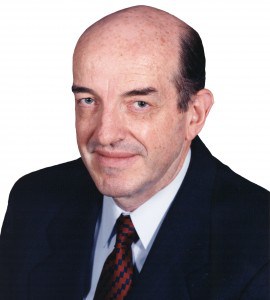Julius Genachowski’s fellow Democratic commissioner Michael Copps is signaling discontent with the FCC chairman over his weak approach at Net Neutrality reform.
During a Thursday speech before the Columbia University School of Journalism in New York, Copps said several aspects of Genachowski’s proposed reforms are non-starters for him.
In particular, he objects to Internet toll-booths, part of the “paid prioritization” argument that would allow preferred content to get traffic priority, presumably in return for money. Copps sees that as the Internet’s great un-equalizer, allowing deep pocketed content providers to gain a competitive advantage.
Copps calls such arrangements dangerous, insisting they “cannot be allowed to supplant the quality of the public Internet service available to us all.”
Copps also finds it unacceptable that wireless providers gained major concessions that would allow them to treat content unequally.
“Internet Freedom also means guaranteeing openness in the wireless world as well as the wired. As people cut their wired connections, why would we deny them openness, accessibility and consumer protections in the wireless world,” Copps asked.
None of the proposals Genachowski makes may withstand legal challenges, Copps says, if the Commission does not reclassify broadband under Title II of its regulatory authority, declaring the Internet a “telecommunications service.”
“If this requires reclassifying advanced telecommunications as Title II telecommunications — and I continue to believe this is the best way to go — we should just do it and get it over with,” Copps said.
[flv width=”512″ height=”308″]http://www.phillipdampier.com/video/BBC News The public is crying out for news and information 12-3-10.flv[/flv]
The FCC’s Michael Copps appeared on BBC America’s World News to discuss his concerns about the quality of American broadcast journalism and Internet policies. (4 minutes)
Mignon Clyburn, the Commission’s newest Democratic member, is being lobbied heavily by public interest groups to join Copps in demanding a better deal for consumers. But some analysts think she’ll be the easiest vote for Genachowski to get.
Clyburn is a strong proponent of Net Neutrality and has made the issue a centerpiece of several public appearances.
Genachowski may find his proposal ultimately will fail to win a majority vote, because Republicans are strongly opposed to it, and his fellow Democratic commissioners may find voting for what some are calling a capitulation to providers too unpalatable.
Republicans promise to try and derail any Net Neutrality reforms in the House of Representatives when they take control in January.
[flv width=”540″ height=”380″]http://www.phillipdampier.com/video/Mignon Clyburn Open Internet Champion.flv[/flv]
Mignon Clyburn receives thanks from public interest groups for her support of an Open Internet. (2 minutes)


 Subscribe
Subscribe






